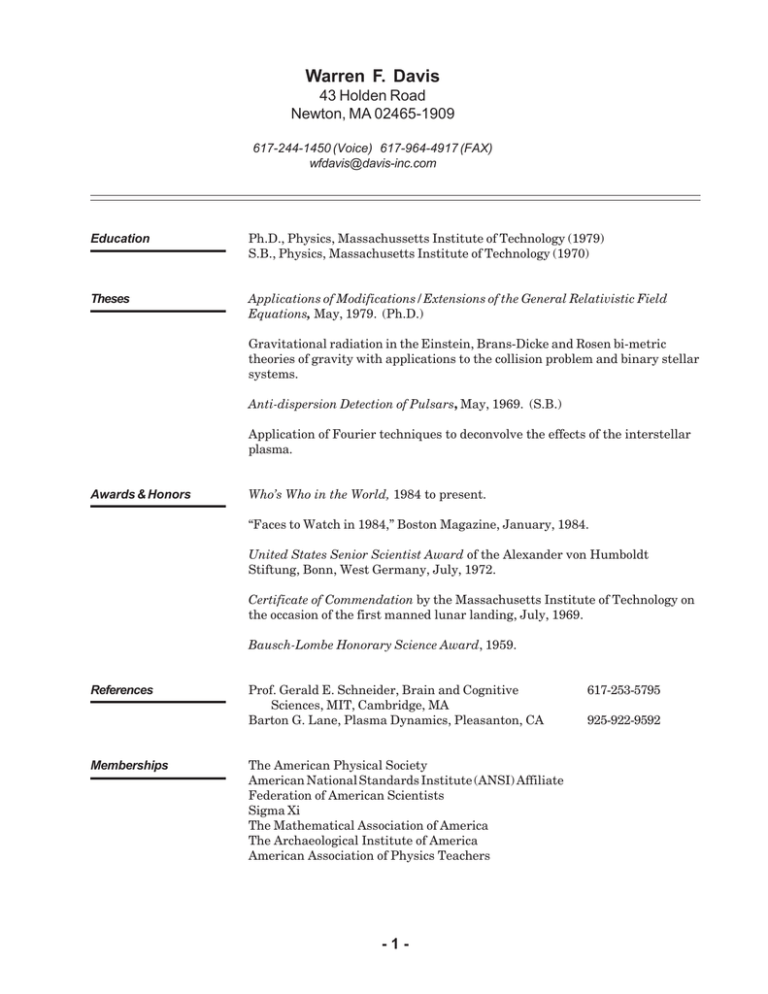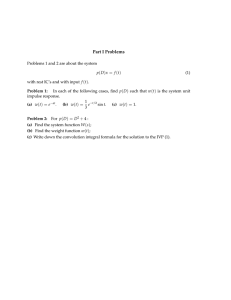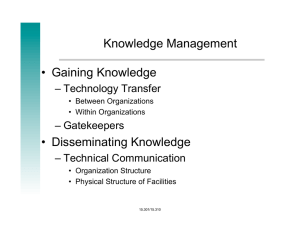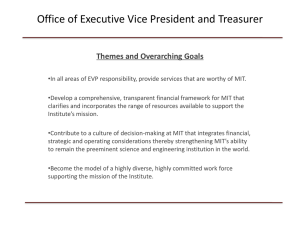Warren F. Davis - Davis Associates, Inc.
advertisement

Warren F. Davis 43 Holden Road Newton, MA 02465-1909 617-244-1450 (Voice) 617-964-4917 (FAX) wfdavis@davis-inc.com Education Ph.D., Physics, Massachussetts Institute of Technology (1979) S.B., Physics, Massachusetts Institute of Technology (1970) Theses Applications of Modifications/Extensions of the General Relativistic Field Equations, May, 1979. (Ph.D.) Gravitational radiation in the Einstein, Brans-Dicke and Rosen bi-metric theories of gravity with applications to the collision problem and binary stellar systems. Anti-dispersion Detection of Pulsars, May, 1969. (S.B.) Application of Fourier techniques to deconvolve the effects of the interstellar plasma. Awards & Honors Who’s Who in the World, 1984 to present. “Faces to Watch in 1984,” Boston Magazine, January, 1984. United States Senior Scientist Award of the Alexander von Humboldt Stiftung, Bonn, West Germany, July, 1972. Certificate of Commendation by the Massachusetts Institute of Technology on the occasion of the first manned lunar landing, July, 1969. Bausch-Lombe Honorary Science Award, 1959. References Memberships Prof. Gerald E. Schneider, Brain and Cognitive Sciences, MIT, Cambridge, MA Barton G. Lane, Plasma Dynamics, Pleasanton, CA The American Physical Society American National Standards Institute (ANSI) Affiliate Federation of American Scientists Sigma Xi The Mathematical Association of America The Archaeological Institute of America American Association of Physics Teachers -1- 617-253-5795 925-922-9592 Professional Experience Extensive experience in the application of computers to the analysis of mathematical and physical problems. Areas of experience range from radar signature analysis for the U.S. Pacific Test Range to digital flight simulation for the Apollo lunar landing mission to signal analysis in radio astronomy to large-scale digital simulation of axon growth in the brain. 1987-pres. Founder and President, Davis Associates, Inc., Newton, MA. Discovered a new algorithm, faster than existing methods, for computing multidimensional fast Fourier transforms (FFTs) of complex and real data. 1970-1988 Davis Associates, Sudbury and Newton, MA. Independent consultant on various mathematical applications involving computers. Major projects: Radar signature analysis for the Pacific missile test range [classified] for the MIT Lincoln Laboratory, and large-scale digital simulation of axon (nerve fiber) growth for the MIT Psychology Department/ Whitaker College. Though classified, a part of the radar signature analysis work involved development of fast convolution algorithms using Walsh functions. 1981-1982 Staff Physicist, Smithsonian Astrophysical Observatory, Cambridge, MA. Developed for the proposed COSMIC telescope an exact algorithm for image reconstruction from an arbitrary rotating aperture (such as a multi-objective rotating optical telescope in earth orbit). The CAT scan used in medical X-ray imaging is a special case of this more general algorithm. 1980-1981 Manager of Applications Development, Computer Design and Applications, Newton, MA. Managed group that developed applications software to support a line of display and array processors. 1976-pres. Consultant to the MIT Whitaker College of Health Sciences, Technology & Management. This ongoing work consists of the development of a large-scale digital simulation of axon (nerve fiber) growth in the brain for the MIT Psychology Department/Whitaker College in order better to understand brain development and organization. 1976-1979 Teaching Assistant and Research Associate, MIT Department of Physics. Work performed while a graduate student in theoretical physics at MIT. See also under Theses. 1973-1976 Senior Scientist, ARCON Corporation, Wakefield, MA. Performed various scientific consulting assignments the most significant of which was radar signature analysis for the U.S. Pacific Test Range while on assignment to the MIT Lincoln Laboratory. Developed additional convolution and correlation algorithms using Walsh transforms, as well as being responsible for development of the software used to analyze radar data from reentering ballistic warheads. [Classified] -2- 1970, 1971-1973 Consultant, Max-Planck-Institut für Radioastronomie, Bonn, West Germany. Developed data analysis software for use with the 400 channel autocorrelation receiver attached to the 100-meter radio telescope in Bonn, West Germany. Developed fast convolution techniques using Walsh transforms for application to signal data processing in radio astronomy as a recipient of the United States Senior Scientist Award of the Alexander von Humboldt Stiftung, West Germany. 1965-1969 Scientist/Programmer, ARCON Corporation, Lexington and Wakefield, MA. Responsible, while consulting from ARCON to MIT, for Apollo lunar mission digital flight simulation and elements of the Apollo onboard guidance computer navigation software. Developed, while consulting from ARCON to the National Radio Astronomy Observatory, new fast spectral transform optimized for real symmetric functions. Algorithm faster than existing Cooley-Tukey method, and used extensively for the spectrographic discovery and observation of molecules in space. 1964-1965 Mathematician/Programmer, Information Processing Service, Newton, MA. Developed various business applications software. 1962-1964 Mathematician/Programmer, Sylvania Electronic Systems, Needham and Waltham, MA. Developed computer software for analysis and equalization of Minuteman II missile intersilo underground communications lines. [Classified] 1959-1962 Electronic Technician, MIT Instrumentation Laboratory, Cambridge, MA. Analysis and evaluation of experimental gyroscopic data used in the design of the Polaris and Poseidon missile guidance systems. [Classified] 1958 Summer Participated in Thayer Academy Summer Advanced Science Program sponsored by Harvard University and Ford Foundation to identify promising scientific talent among high school students in response to the Soviet Sputnik launch. Assigned to do a special research project at Sylvania Electronic Systems, Missile Systems Laboratory, Waltham, MA. Thesis on junction transistor rise, storage, and fall time using the Ebers and Moll equations with application to the Ballistic Missile Early Warning System (BMEWS). [Classified] Awarded top scholarship on completion of summer program. -3- Expert Witness 1994-pres. Expert witness in some 390 cases throughout the United States and Canada relating to accidents involving automatic pedestrian doors of all types – sliding, swinging, folding and revolving – and of all major manufacturers operating in the U.S. First to identify and propound the "triple design flaw" exhibited by conventional microwave motion sensors, and the effects of poor IR (infrared) reflectivity on the detection reliability of active IR presence sensors used on swinging doors. First also to call for closed-loop (self diagnostic) sensor design to enhance door safety. And, first to identify serious errors in the ANSI A156.27-2003 standard for automatic and manual revolving doors. Publications Journals/papers A Class of Efficient Convolution Algorithms, Applications of Walsh Functions, 1972 Proceedings, pp. 318-329, March, 1972. Real Time Compensation for Autocorrelation Clipper Bias, Symposium on the Collection and Analysis of Astrophysical Data, National Radio Astronomy Observatory, Charlottesville, VA, November, 1972. Astronomy and Astrophysics, June, 1974, 15(3), p. 381. Feasibility Study of an Optically Coherent Telescope Array in Space, Contract NAS8-33893, Technical Report No. 1, Smithsonian Astrophysical Observatory, Cambridge, MA, November, 1981. The COSMIC Telescope Array: Astronomical Goals and Preliminary Image Reconstruction Results, Preprint Series, No. 1600, Center for Astrophysics, Cambridge, MA, 1982. Image Reconstruction for the COSMIC Telescope Array, (with Wesley A. Traub), Optical Society of America, 1982 Annual Meeting, October 20, 1982. Coherent Optical System of Modular Imaging Collectors (COSMIC) Telescope Array: Astronomical Goals and Preliminary Image Reconstruction Results, SPIE, Vol. 332, Advanced Technology Optical Telescopes, pp. 164-175, 1982. On the Development of Neuronal Arbors, (with G. E. Schneider and S. Jhaveri), Working Group on Developmental Neurobiology of Mammals, Pontificiae Academiae Scientiarum Scripta Varia 59, pp. 31-64, 1987. Anatomy of a Door, in ATLA Automatic Door Litigator, ATLA Automatic Door Litigation Group newsletter, Vol. 1., No. 1, May, 1993. ANSI A156.10; A Standard in Decline, in ATLA Automatic Door Litigator, ATLA Automatic Door Litigation Group newsletter, Vol. 2., No. 1, July, 1994. Books “The Pentagon and the Scientist,” in The Militarization of High Technology, John Tirman, ed., Ballinger, Cambridge, MA, 1984. “Technology and Alternative Security,” in Alternative Security: Living without Nuclear Deterrence, Burns H. Weston, ed., Westview Press, Boulder, CO, 1990. -4-



